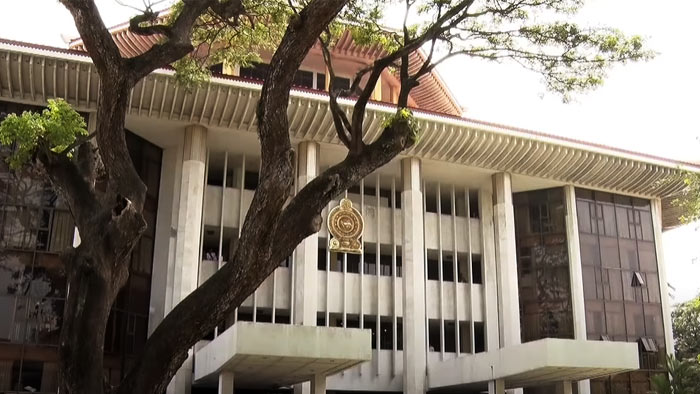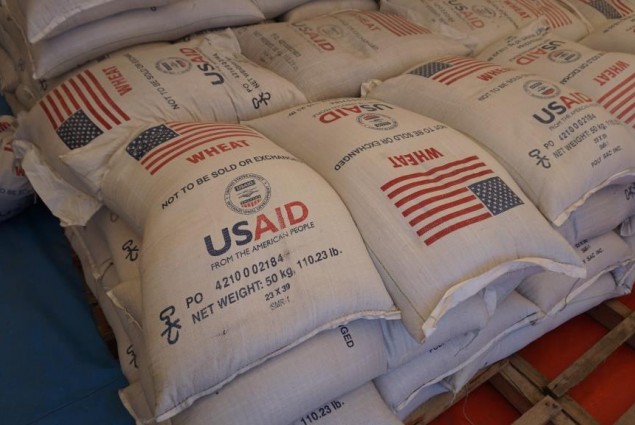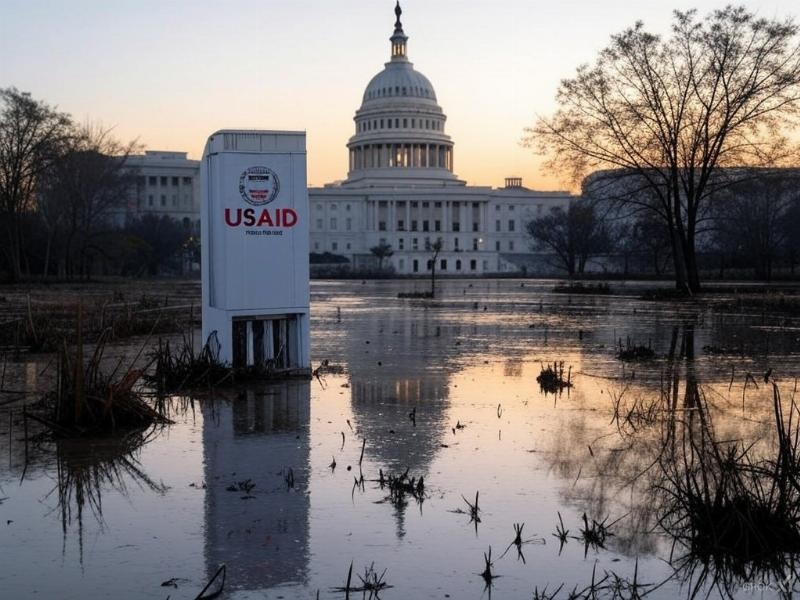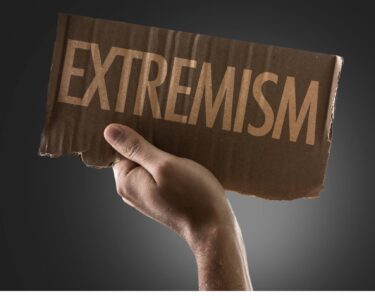US Funding Freeze Hits Sri Lanka’s Key Programs, Raising Concerns for Food Security, Governance, and Economic Reform

dré Franche, the United Nations Resident Coordinator in Sri Lanka, revealed that the funding freeze is jeopardizing a variety of important initiatives, including those aimed at improving food security, economic reforms, anti-corruption efforts, border security, and managing migration. According to Franche, the US contribution represents roughly 12% of the UN’s annual budget for ten ongoing programs in Sri Lanka, including projects on agriculture, climate change adaptation, disaster preparedness, youth entrepreneurship, and maritime security. The sudden cessation of US assistance has left these programs, which involve collaborations with civil society and the private sector, in limbo.
Sri Lanka Faces Crisis as Critical Projects Are Left in Limbo Amid US Aid Suspension
The pause in US foreign aid follows US President Donald Trump’s recent announcement of a broader review of American involvement in the United Nations, which includes withdrawing from the UN Human Rights Council (UNHRC) and reducing funding to various UN bodies. Despite this, Franche emphasized the vital role the US has played in supporting UN activities worldwide, noting that the country’s generosity allows the UN to operate in some of the most troubled regions, providing humanitarian aid and contributing to global stability. He expressed hope that the US would soon resume its financial support to the UN’s development programs, which help protect over 100 million people annually and promote peace and stability. Franche urged the US to re-engage with Sri Lanka’s ongoing projects to prevent further setbacks.

Will the US Resume Funding? Sri Lanka’s Development Projects Hang in the Balance
The US Agency for International Development (USAID) freeze has not only left NGOs in a precarious position but also affected government projects. Key ministries, including Finance, Justice, Environment, and Energy, had been receiving USAID funding for ongoing projects. Data from the Department of External Resources (ERD) reveals that USAID has financed Sri Lankan government initiatives totaling Rs. 31 billion (USD 106 million) since 2019, with substantial amounts allocated during the Maithripala Sirisena, Gotabaya Rajapaksa, Ranil Wickremesinghe, and Anura Kumara Dissanayake governments. Several crucial government projects were in progress when the funding was halted, such as the Partnership for Accelerating Results in Trade, National Expenditure and Revenue (PARTNER) initiative, which aimed to improve trade-related regulations and streamline customs operations.
Is the US Pulling Away? Sri Lanka’s Struggle with Halted Foreign Aid
The Justice Ministry’s “Efficient and Effective Justice” project, which had already digitized nine model courts, was also impacted, leaving the completion of 10 additional model courts and comprehensive training programs on hold. Meanwhile, the Energy Ministry’s ongoing efforts to develop renewable energy, including solar power installations through the Sri Lanka Energy Project, are also at risk due to the funding freeze. Although official communication from USAID has been sparse, ministries are exploring alternative ways to integrate these initiatives into other projects, but the uncertainty surrounding US assistance remains a significant challenge for the country’s development goals.
How the US Foreign Assistance Freeze Is Undermining Sri Lanka’s Economic Reforms
The freeze on USAID funding has severely hindered Sri Lanka’s ability to implement key reforms. The PARTNER initiative, for instance, which was designed to enhance trade and improve the legal and regulatory environment for trade, was dependent on US funding. This USD 22.9 million project had provided technical assistance to several key government institutions, including the Auditor General, Inland Revenue, Customs, and Excise departments. Now, with the US government’s “stop work” order in place, projects intended to digitize customs and modernize the public debt management office have been put on hold.
US Stops Funding: What This Means for Sri Lanka’s Food Security and Governance
Food security is another area that stands to suffer due to the freeze. UN programs supported by US funding had been helping Sri Lanka enhance its agricultural capabilities and adapt to climate change. These programs were vital to addressing food insecurity and building resilient agricultural systems in a country prone to disasters. Without the continuation of this support, Sri Lanka may struggle to meet the growing challenges posed by environmental changes and economic instability.
Energy and Justice Projects in Danger: Sri Lanka Faces Major Setback from US Aid Freeze
Beyond governance and food security, projects in the energy sector are also facing serious setbacks. The Sri Lanka Energy Project, which had been working to expand renewable energy sources and increase the country’s solar power capacity, was funded in part by USAID. With the funding freeze in place, these projects are at risk of stalling, which could delay Sri Lanka’s shift towards more sustainable energy sources. Similarly, the Justice Ministry’s efforts to digitize courts and train personnel are now uncertain, threatening progress in the legal reform sector.

Can Sri Lanka Survive Without US Support? Key Ministries Face Budget Shortages
With the US’s financial support withdrawn, Sri Lanka’s key ministries are now scrambling to find alternative funding sources to continue their work. The government had relied on USAID for several major projects, and now ministries such as Justice, Finance, and Energy are left searching for financial solutions to sustain their initiatives. The freeze leaves the government in a difficult position, as it seeks to maintain progress while navigating the uncertainty of future foreign aid.
The US Funding Freeze Explained: Why Sri Lanka’s Development Plans Are at Risk
The freeze on US foreign assistance is a result of a broader review by the Trump administration, which has included a re-evaluation of the US’s involvement with the UN and its various agencies. The impact on Sri Lanka is substantial, as it affects critical sectors such as trade, agriculture, energy, and justice reform. The US had been a key partner in Sri Lanka’s development efforts, and its absence leaves a significant gap in the country’s plans for growth and stability.
Urgent Questions for Sri Lanka: What Happens Next After the US Cuts Aid?
As the funding freeze continues, Sri Lanka is left with uncertain prospects for many of its ongoing development programs. While there is hope that the US will eventually resume funding, the delay has raised urgent questions about the country’s future development trajectory. The UN and other international partners are working to bridge the gap, but the long-term impact of the freeze on Sri Lanka’s economic and social reforms remains to be seen.







